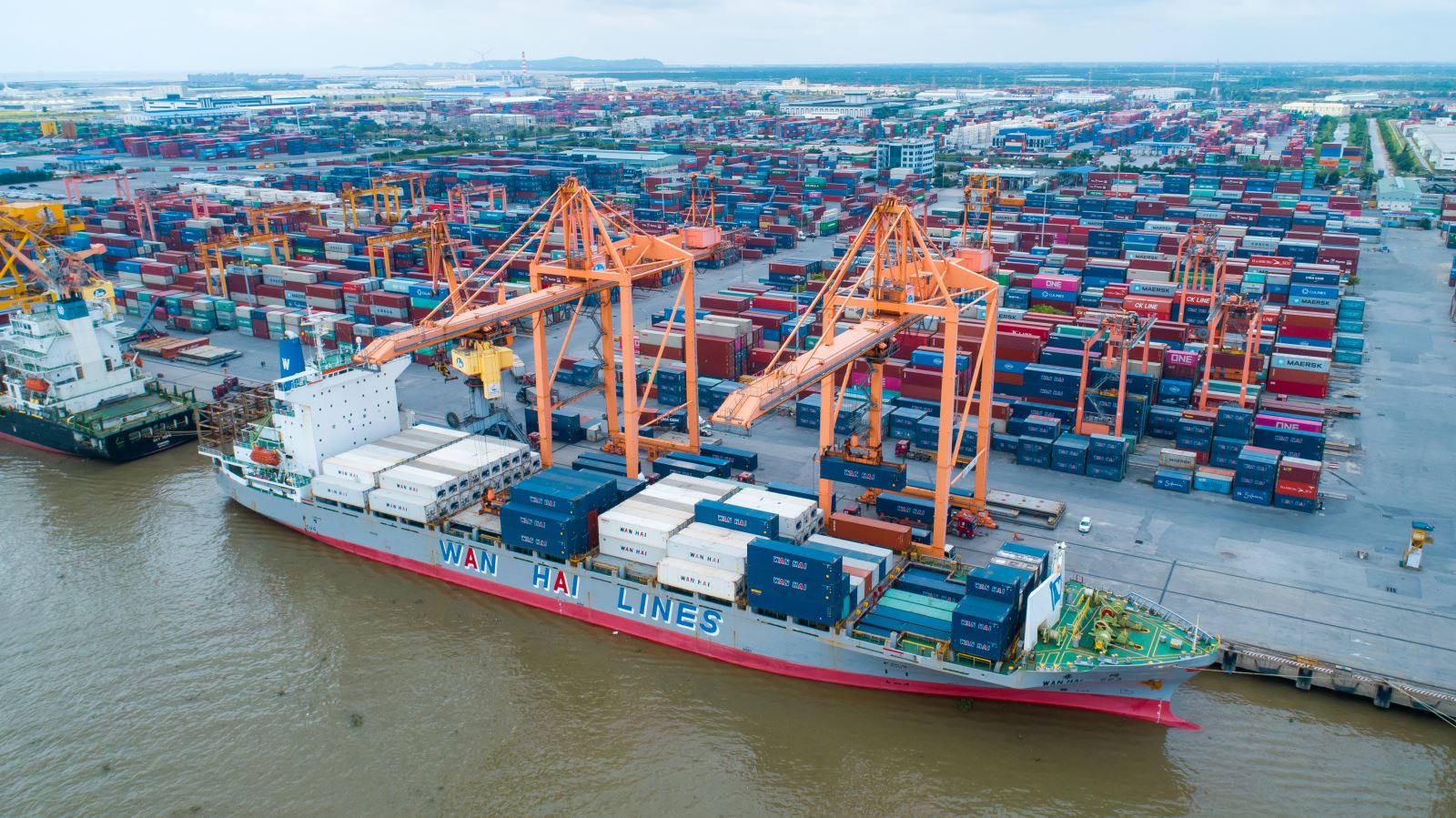
From an international perspective, many experts believe that these achievements primarily stem from the comprehensive renovation policy, in which foreign affairs and international integration are firmly identified by the Communist Party of Vietnam as a key development driving force.
A new milestone in thinking is taking shape when the Draft Document submitted to the 14th Party Congress proposes to put “foreign affairs and international integration” on par with national defense and security. This is not just a technical adjustment, but an important shift in strategic vision, reflecting Vietnam’s proactive and self-reliant spirit in the face of a volatile global order.
The reality of four decades of renovation shows that international integration has created leverage for the Vietnamese economy in both scale and quality of growth. Vietnam is currently among the 34 largest economies in the world; compared to 1986, GDP has increased nearly 100 times, with per capita income approaching 5,000 USD. Based on 17 free trade agreements (FTAs) connecting more than 60 key economies, Vietnam has increasingly participated in the global production and supply chain, ranking among the 20 countries with the largest trade scale, and in the top 20 foreign direct investment (FDI) destinations since 2019; remittances are also among the top 10 in the world.
Recent developments have reinforced that trajectory. In the first 10 months of 2025, total import-export turnover reached 762.44 billion USD, up 17.4% over the same period last year; exports increased by 16.2%, imports increased by 18.6%; realized FDI capital reached 21.3 billion USD - the highest level in 5 years.
In recently published updated reports, international organizations such as the World Bank (WB), Asian Development Bank (ADB), HSBC, and Standard Chartered all raised their forecasts for Vietnam's GDP growth in 2025 to over 7%, among the highest in the Association of Southeast Asian Nations (ASEAN), thereby consolidating the growth target of 8% or more in 2025 and aiming for "double-digit" growth in the 2026-2030 period, laying the foundation for the goal of entering the upper middle-income group by 2030 and the high-income group by 2045 as set by the Party and State.
But the significance of integration goes even further than the above figures. It is a fundamental shift in development thinking. From the 9th Party Congress, when the policy of “international economic integration” was first mentioned, to the 11th Congress, this policy was expanded to “international integration in all fields”. Resolution 22-NQ/TW dated April 10, 2013 of the Politburo continued to concretize the policy of “proactive and active international integration”. By the 13th Congress, that orientation was developed and perfected into “proactive and active comprehensive, deep and effective international integration”.
The article titled “Strengthening in international integration” by General Secretary To Lam emphasized that process: The Party has proposed a policy of international integration, first economic integration, then comprehensive integration to open up and expand relations with countries and international organizations, mobilize external resources for socio-economic development and enhance the role and position of the country, bringing Vietnam into world politics, the international economy and human civilization.

From an international academic perspective, many opinions agree with this movement. Professor Carl Thayer - a Vietnam research expert at the Australian Defence Force Academy, University of New South Wales - assessed that Vietnam has become a positive factor in the regional structure, with a strategy of multilateralization, diversification of partnerships and the ability to "confidently promote multilateralism" in a complex geopolitical context.
Professor Thayer analyzed that Vietnam has made clear and decisive changes when it has gradually established its role and position in the international arena through opening up its economy, joining the Association of Southeast Asian Nations (ASEAN), the Asia-Pacific Economic Cooperation Forum (APEC), the World Trade Organization (WTO), and signing bilateral free trade agreements.
From an implementation perspective, ADB Country Director for Vietnam Shantanu Chakraborty said that Vietnam has made significant progress in international integration, integrating more deeply into regional and global production networks. This is reflected in vibrant trade activities, significantly boosted by improvements in export-oriented industrial production.
The fact that the Draft Document of the 14th National Congress puts “foreign affairs and international integration” on par with “national defense and security” is a turning point in thinking: when integration becomes a pillar, all strategies - from science, technology, digital economy, green transformation to culture - must integrate the foreign affairs dimension right from the design stage. The goal is not to stop at the role of “production - export base”, but to move towards positioning Vietnam as a regional center of innovation, finance and technology, making a substantial contribution to peace, cooperation and sustainable development.

However, to transform “integration” into “creation” and to place integration on par with defense and security as a strategic pillar, a series of prerequisites must be met. Therefore, Resolution 59-NQ/TW dated January 24, 2025 is considered a step to realize the Party's orientation, in which “foreign affairs and international integration” is identified as one of the new strategic “tripods”. Associate Professor Nguyen Dang Bang of the Judge School of Business Management at the University of Cambridge (UK) assessed that Resolution 59-NQ/TW, under the leadership of General Secretary To Lam, is a breakthrough decision, marking a historic turning point in Vietnam's international integration. According to him, Vietnamese leaders have correctly recognized the importance of positioning integration in an open, increasingly multipolar and potentially volatile world.
Contributing ideas to further promote the effectiveness of the Resolution, Associate Professor Nguyen Dang Bang said that first of all, Vietnam needs to organize the implementation methodically and closely, with breakthroughs in personnel and retraining of officials. Along with that, Vietnam needs to persevere in a balanced policy, not choose sides, maintain good relations with all countries, and maintain peace and stability for development.
According to the Associate Professor, integration must be substantive, based on economics and trade, focusing on maintaining and improving its position in the global supply chain. Vietnam, therefore, needs to develop key industries based on high technology such as semiconductors and artificial intelligence (AI), thereby optimizing existing foreign relations and creating competitive advantages on a global scale.
At the institutional level, Professor Carl Thayer recommended that Vietnam continue to improve the efficiency of its apparatus, especially in decision-making and resource allocation; and at the same time, make good use of relations with partners - especially comprehensive strategic partners - to support the strong development of science and technology, innovation, digital economy and human resource training.
Under the leadership of the Party, after 40 years of Renovation, Vietnam has achieved great and historic achievements: independence, sovereignty and a peaceful environment are maintained; political and social stability; national defense and security are ensured; economic growth; people's lives are constantly improved. Prestige and international position continue to be affirmed: Vietnam is a friend, a reliable partner, and a responsible member of the international community.
Entering a new era, establishing international integration as a strategic pillar on par with national defense and security is a timely development choice with a long-term vision: shifting from "beneficiary" to "creator", from "follower" to "accompanying and leading" in areas where Vietnam has advantages; thereby, gradually positioning the country's new position on the global map.
Source: https://baotintuc.vn/kinh-te/dan-dat-hoi-nhap-nang-tam-vi-the-viet-nam-20251111104800990.htm


![[Photo] Chu Noodles - the essence of rice and sunshine](https://vphoto.vietnam.vn/thumb/1200x675/vietnam/resource/IMAGE/2025/11/11/1762846220477_ndo_tl_7-jpg.webp)




![[Photo] Prime Minister Pham Minh Chinh chairs a meeting on housing policy and the real estate market.](https://vphoto.vietnam.vn/thumb/1200x675/vietnam/resource/IMAGE/2025/11/11/1762838719858_dsc-2107-jpg.webp)
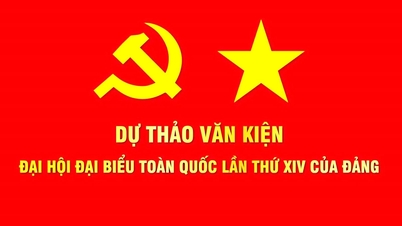




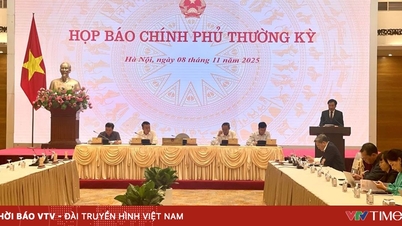

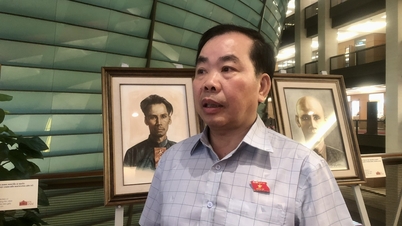

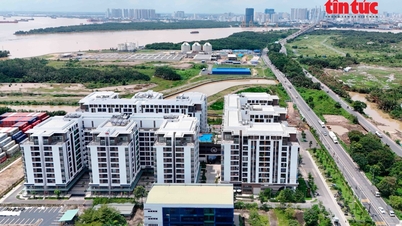
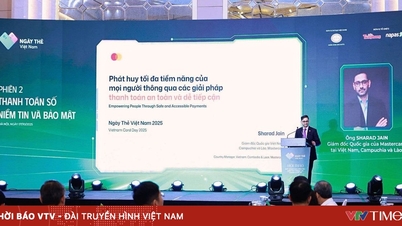
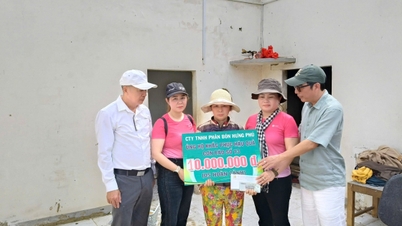

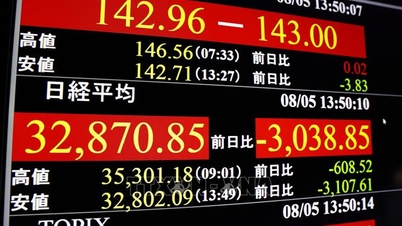






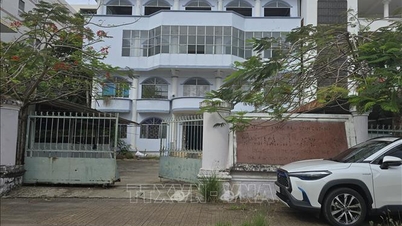
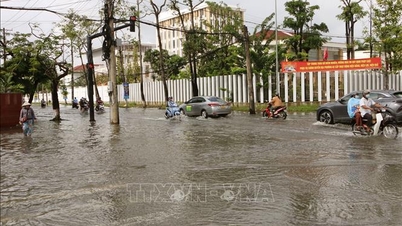

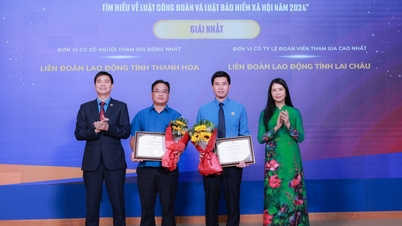
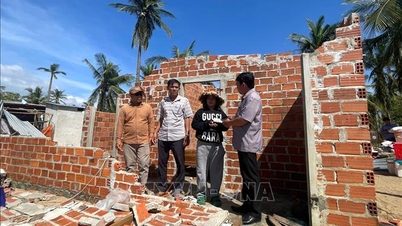























































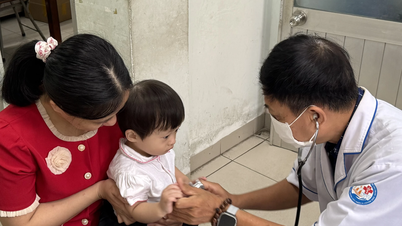










![Dong Nai OCOP transformation: [Article 4] Reaching national standard products](https://vphoto.vietnam.vn/thumb/402x226/vietnam/resource/IMAGE/2025/11/11/1762825820379_4702-cac-san-pham-trai-cay-chung-nhan-ocop-nongnghiep-174649.jpeg)


![Dong Nai OCOP transition: [Article 3] Linking tourism with OCOP product consumption](https://vphoto.vietnam.vn/thumb/402x226/vietnam/resource/IMAGE/2025/11/10/1762739199309_1324-2740-7_n-162543_981.jpeg)






Comment (0)